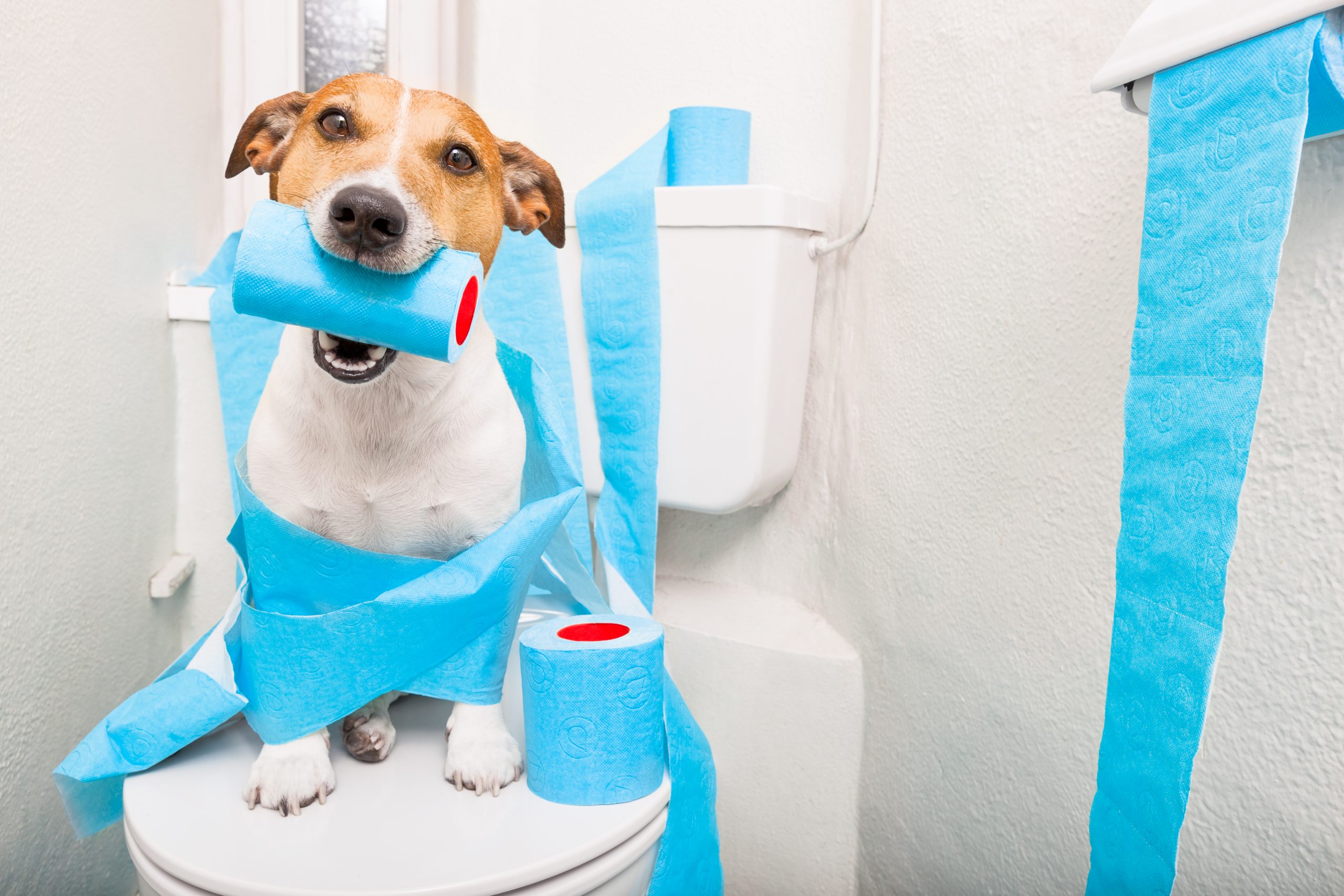Why won’t my puppy go potty outside? This enigmatic question is one that troubles many new puppy owners. Wistfully staring out the window, hoping for that glorious moment when their furry friend relieves themselves in the great outdoors, only to be disappointed yet again by a tiny accident on the floor. It can be a frustrating and perplexing situation, but fear not, for there are a variety of reasons why your pup may be reluctant to answer nature’s call in the backyard. In this article, we will explore some common factors that might be influencing your puppy’s bathroom habits, as well as provide helpful tips to encourage them to embrace the great outdoors for their potty needs. So, let’s unravel this canine conundrum and find out why your puppy won’t go potty outside.
Table of Contents
Understanding the Reasons behind Your Puppy’s Refusal to Go Potty Outside
Welcoming a new puppy into your home is an exciting and joyful experience. However, one common potty training challenge that many puppy owners face is their furry friend’s refusal to go potty outside. If you find yourself constantly asking, “Why won’t my puppy go potty outside?” don’t worry, you’re not alone. In this article, we will explore the potential reasons behind this behavior and provide helpful tips to address the issue.

Source www.instinctdogtraining.com
1. Fear or Anxiety
Puppies, especially those that have had limited exposure to the outdoors, may experience fear or anxiety when going potty outside. They might feel uncomfortable in unfamiliar spaces or become startled by new sounds, sights, or people passing by.
The Solution: Patience is key here. Gradually introduce your puppy to the outside environment and make it a positive experience. Begin with short trips to a calm and quiet area where they can relieve themselves without distractions. Offer treats and praise to reinforce positive associations with going potty outside.
2. Lack of Housetraining
Your puppy might simply not understand the concept of going potty outside. If they have not been properly housetrained, they may not know that it’s the preferred location for their bathroom needs.
The Solution: Start by establishing a consistent potty routine. Take your puppy outside frequently, especially after meals, naps, playtime, and waking up. Use verbal cues like “go potty” or “do your business” to reinforce the desired behavior. Reward them with praise, treats, or a small play session once they successfully go potty outside.
3. Change in Environment
Moving to a new home, a different neighborhood, or even experiencing a change in weather can disrupt your puppy’s potty habits. The new surroundings might confuse or unsettle them, causing them to resist going potty outside.
The Solution: Allow your puppy time to adjust to their new environment. Create a designated potty area in your yard and consistently take them there during potty breaks. Provide familiar scents, such as a patch of grass from their previous home, to make the area more comforting and recognizable.
4. Distractions and Excitement
Puppies are naturally curious and easily distracted. The allure of new smells, sounds, or even outdoor playtime might overshadow their need to go potty. They may find the outdoor environment more exciting than the thought of taking care of their bathroom needs.
The Solution: Minimize distractions during potty breaks by choosing a quiet area away from busy streets or other animals. Ensure that playtime and potty breaks are separate activities, with potty breaks being more focused and structured. Use a leash to keep your puppy in the designated potty area until they go, and then reward them with brief playtime as a reward.
5. Medical Issues
It’s essential to rule out any underlying medical issues that could be causing your puppy’s reluctance to go potty outside. In some cases, urinary tract infections, digestive problems, or other health conditions may be the culprit.
The Solution: If you’ve tried various techniques and your puppy continues to display aversion towards going potty outside, it’s advisable to consult a veterinarian. They can assess your puppy’s health and provide necessary treatment if any medical issues are detected.
1. Fear or Anxiety
Puppies, just like humans, can experience fear and anxiety, which can affect their ability to go potty outside. There are various factors that can contribute to this fear or anxiety, such as new environments, loud noises, unfamiliar people or animals, or even past negative experiences. When a puppy feels scared or anxious, they may find it difficult to relax enough to eliminate outside.
One way to address this issue is by gradually exposing your puppy to outside environments. Start by taking them to quieter areas or places with fewer distractions. Allow them to explore and get familiar with the surroundings at their own pace. By doing so, you can help your puppy build confidence and associate going potty outside with positive experiences.
Another helpful technique is to create a calm and safe potty environment for your puppy. Choose an area that is quiet, away from busy roads or noisy neighbors. You can also provide a crate or a designated spot where your puppy feels secure during potty breaks. Creating a routine and sticking to it can also help reduce anxiety, as puppies thrive on consistency and predictability.
2. Insufficient House Training
Sometimes, puppies may not go potty outside because they haven’t received proper or consistent house training. House training is a gradual process that requires patience, consistency, and positive reinforcement. If the puppy hasn’t been properly trained or if there have been inconsistencies in their training, they may not understand the desired behavior expected from them.
To tackle this issue, it’s important to establish a solid house training routine. Take your puppy outside regularly, preferably after meals, naps, playtime, or any other trigger that may indicate they need to go potty. Use a consistent verbal cue, such as “go potty,” while they are eliminating, and reward them with praise or treats immediately after they finish. Consistency is key when it comes to house training.
If accidents happen indoors, avoid scolding or punishing your puppy, as this can create fear or confusion. Instead, clean up the mess without making a fuss, and continue reinforcing the desired behavior of going potty outside. Keep in mind that puppies have a limited bladder capacity, so they may need more frequent potty breaks during their early stages of training.
3. Medical Issues or Urinary Tract Infections (UTIs)
If your puppy is consistently refusing to go potty outside, it’s essential to rule out any potential medical issues that could be causing this behavior. Urinary tract infections (UTIs) are common among puppies and can make it uncomfortable or painful for them to eliminate outside.
Some signs of a UTI include frequent urination, straining or whimpering during urination, accidents indoors despite having good house training, or cloudy and foul-smelling urine. If you suspect your puppy may have a UTI, it’s crucial to consult with a veterinarian who can perform the necessary tests and provide appropriate treatment.
In addition to UTIs, other medical issues such as digestive problems, parasites, or hormonal imbalances could also impact your puppy’s ability or willingness to go potty outside. Regular veterinary check-ups and open communication with your vet are crucial to ensure your puppy’s health and address any medical concerns that may be affecting their behavior.
<h2>4. Weather Conditions
Weather can play a significant role in a puppy’s reluctance to go potty outside. Extreme temperatures, whether it’s scorching heat or freezing cold, can make it uncomfortable for puppies to eliminate outdoors. Puppies are more sensitive to temperature extremes than adult dogs, and they rely on their owners to create a comfortable environment for them.
During hot weather, it’s important to provide shade and fresh water for your puppy during potty breaks. Avoid taking them out during the hottest parts of the day, and opt for early morning or evening walks when the temperatures are lower. On the other hand, during cold weather, consider getting your puppy a cozy jacket or sweater to keep them warm during their outdoor potty breaks.
It’s also worth mentioning that rain or wet conditions can be a deterrent for some puppies. If your puppy dislikes getting wet, you can try providing them with a sheltered area to eliminate, such as a covered porch or balcony. Additionally, using pee pads indoors during adverse weather conditions can be a temporary solution until your puppy becomes more comfortable with going potty outside.
5. Distractions and Lack of Focus
Puppies are easily distracted, especially when they are exploring new environments or encountering exciting smells, sounds, or movements. These distractions can divert their attention from the task at hand, making it difficult for them to focus on eliminating outside.
To overcome this issue, minimize potential distractions during potty breaks. Choose areas that are relatively quiet and free from enticing smells or visual stimuli. Keep the potty breaks short and focused, without allowing room for excessive play or exploration until after the puppy has successfully eliminated. Gradually increase the duration of potty breaks as your puppy becomes more reliable in their potty training.
In summary, a puppy’s reluctance to go potty outside can be caused by fear or anxiety, insufficient house training, medical issues or UTIs, weather conditions, or distractions. It’s important to understand the underlying reasons behind this behavior and address them appropriately. With patience, consistency, and positive reinforcement, you can help your puppy become comfortable with going potty outside and establish a healthy bathroom routine. Remember, each puppy is unique, so it may take time and adjustments to find the best approach that suits your furry friend’s needs.
Thanks for reading and good luck!
We hope this article has shed some light on the possible reasons behind why your puppy won’t go potty outside. Remember, patience and consistency are key when it comes to house training. While it can be frustrating, try not to get discouraged. With time, love, and positive reinforcement, your furry friend will eventually learn to do their business where you want them to. We hope you found this article helpful and that you’ll visit again later for more tips and tricks on raising a happy and healthy puppy. Don’t forget to check out our other articles for more valuable information tailored to pet owners just like you. Thanks again for reading and best of luck with your potty training journey!
 Treat For Dog – Brain Training for Dogs, Dog Training & Obedience Discover Treat For Dog and get your pup on the path to smarter, happier, and healthier living with brain training for dogs.
Treat For Dog – Brain Training for Dogs, Dog Training & Obedience Discover Treat For Dog and get your pup on the path to smarter, happier, and healthier living with brain training for dogs.



